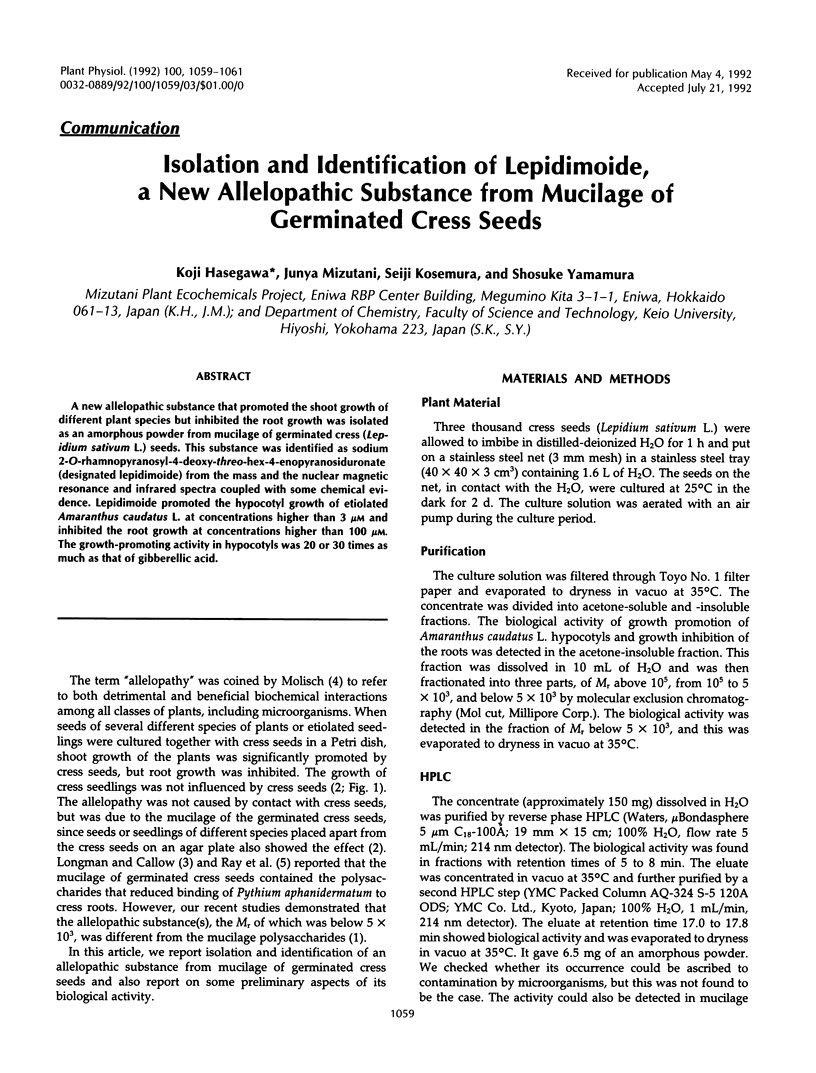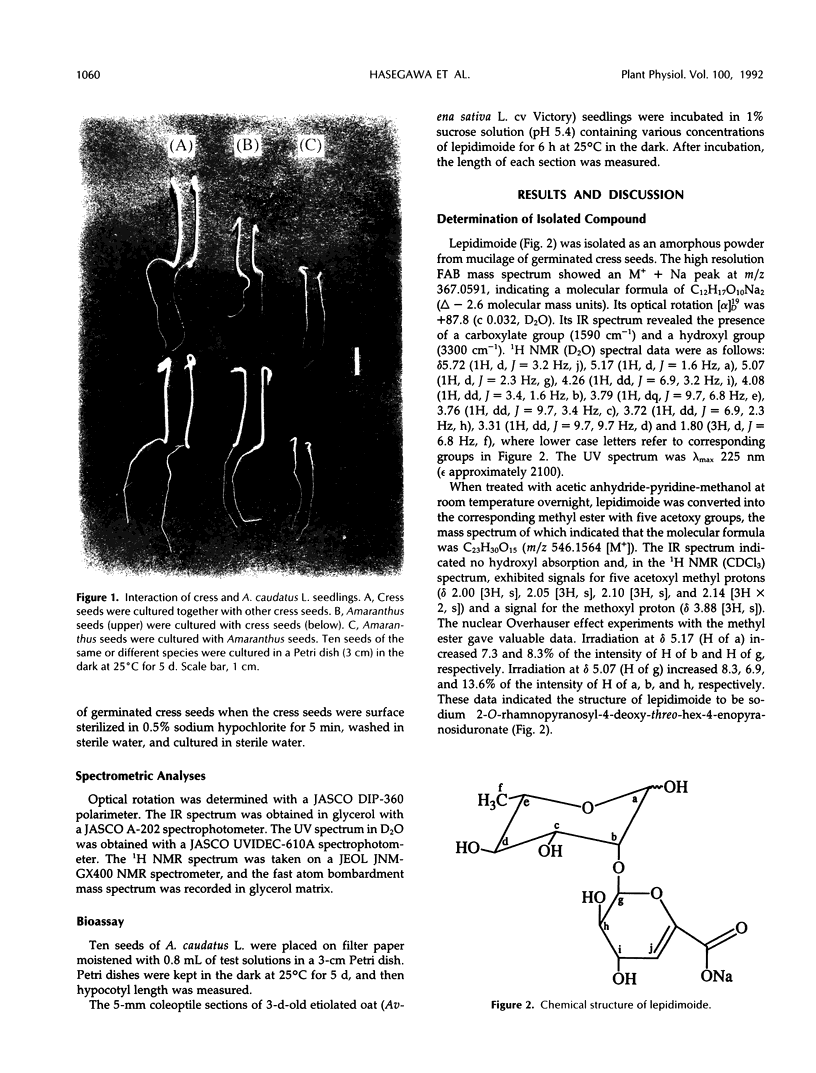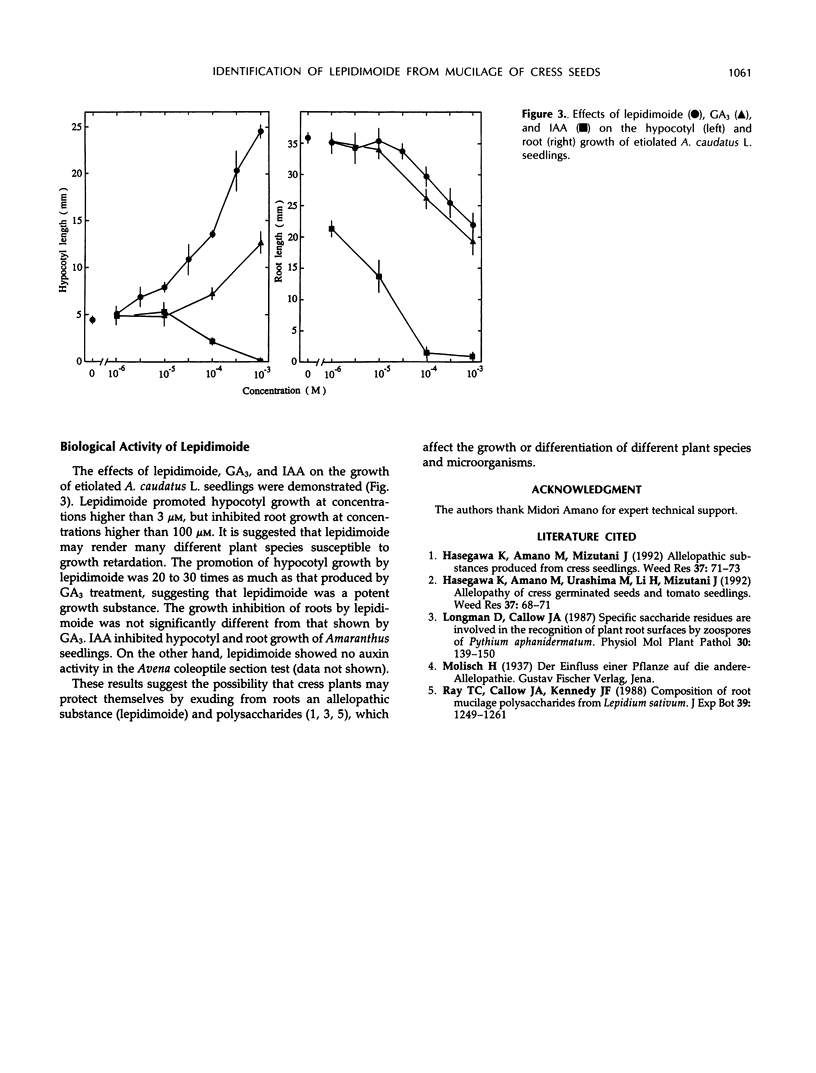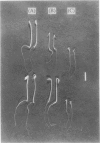Abstract
A new allelopathic substance that promoted the shoot growth of different plant species but inhibited the root growth was isolated as an amorphous powder from mucilage of germinated cress (Lepidium sativum L.) seeds. This substance was identified as sodium 2-O-rhamnopyranosyl-4-deoxy-threo-hex-4-enopyranosiduronate (designated lepidimoide) from the mass and the nuclear magnetic resonance and infrared spectra coupled with some chemical evidence. Lepidimoide promoted the hypocotyl growth of etiolated Amaranthus caudatus L. at concentrations higher than 3 μm and inhibited the root growth at concentrations higher than 100 μm. The growth-promoting activity in hypocotyls was 20 or 30 times as much as that of gibberellic acid.
Full text
PDF





